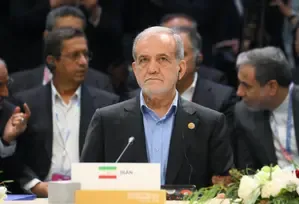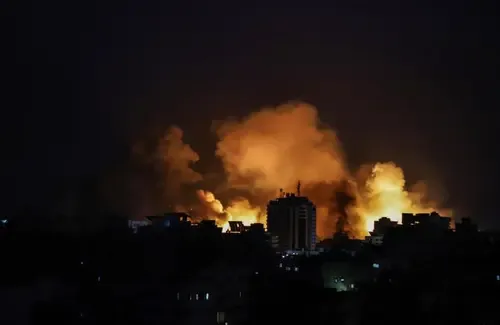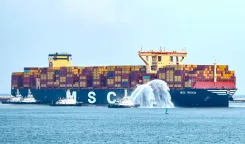Has the UN Reactivated Sanctions on Iran?

Synopsis
Key Takeaways
- The UN has reinstated sanctions against Iran as of September 27, 2023.
- 43 individuals and 78 entities are back on the sanctions list.
- The sanctions resulted from Iran's alleged breaches of the 2015 nuclear deal.
- France, Britain, and Germany initiated the snapback mechanism.
- Iran insists on its non-intent to develop nuclear weapons.
United Nations, Sep 29 (NationPress) The United Nations has announced the reactivation of sanctions against Iran.
According to a statement from the Office of the Spokesperson for the UN Secretary-General, "In accordance with the procedures outlined in paragraphs 11 and 12 of Security Council resolution 2231 (2015), effective from 27 September at 8 p.m. Eastern Daylight Time, all stipulations of resolutions 1696 (2006), 1737 (2006), 1747 (2007), 1803 (2008), 1835 (2008), and 1929 (2010) have been reinstated as they were prior to the adoption of resolution 2231 (2015) on 20 July 2015."
The statement further indicated that the sanctions list curated by the Security Council Committee created under resolution 1737 has been reinstated, featuring 43 individuals and 78 entities that were previously listed before the adoption of resolution 2231, as reported by Xinhua news agency.
The spokesperson's note detailed the names of individuals and entities that have been reinstated to the United Nations Security Council Consolidated Sanctions List.
Last month, France, Britain, and Germany activated the snapback mechanism, allowing for the re-imposition of UN sanctions within 30 days if Iran was found to be in violation of the 2015 nuclear agreement, officially termed the Joint Comprehensive Plan of Action (JCPOA).
On September 19, the UN Security Council did not pass a resolution that would have extended sanctions relief for Iran under the JCPOA. A subsequent resolution aiming to provide a six-month extension to both the JCPOA and Resolution 2231 also failed to gain approval in the Security Council.
Iran halted inspections of its nuclear facilities, which is a legal requirement under the terms of the 2015 agreement, after several of its nuclear sites and military bases were bombed by Israel and the US in June.
President Masoud Pezeshkian asserted last week that the nation has no plans to develop nuclear weapons.









